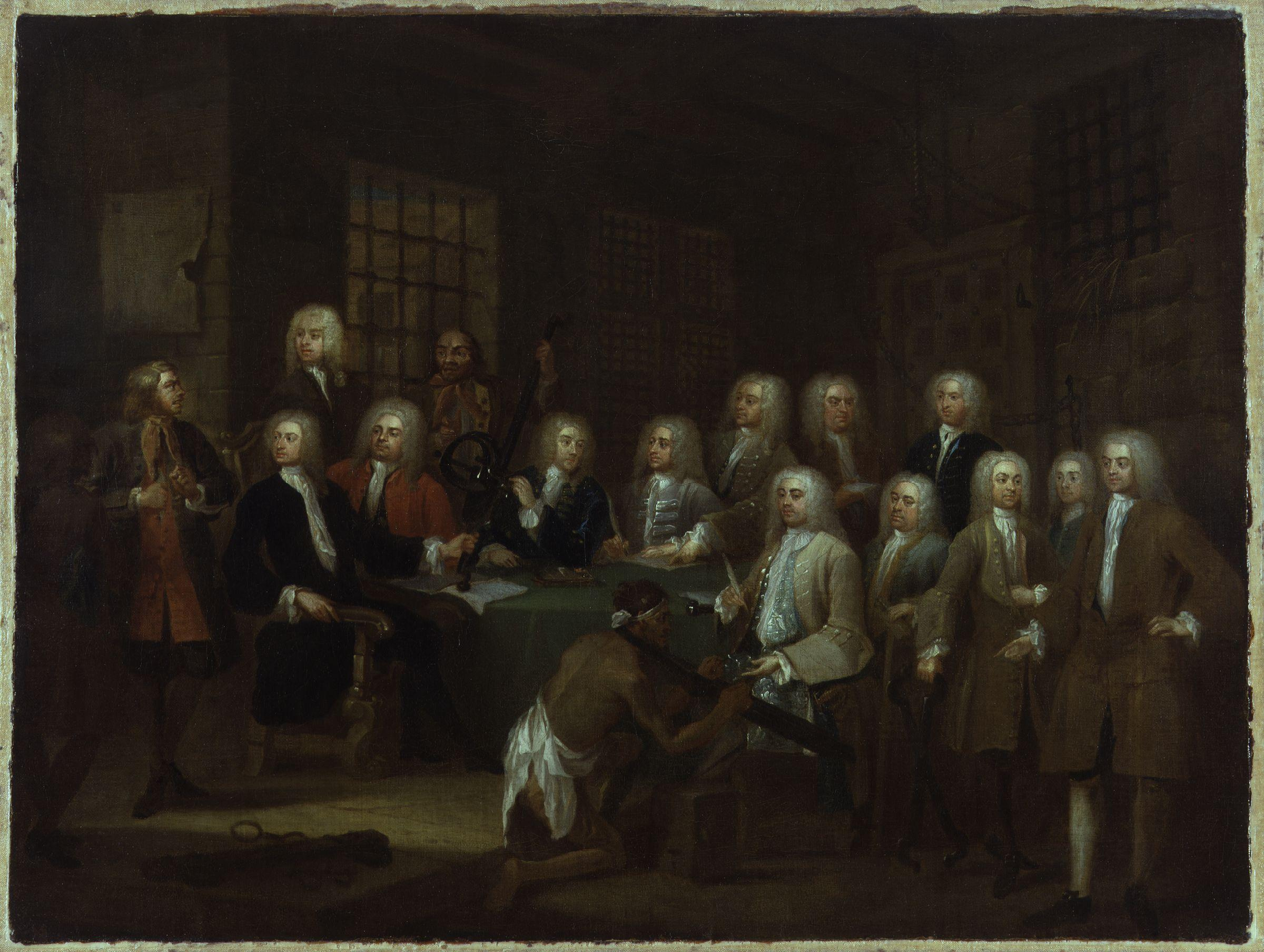|
Trustees For The Establishment Of The Colony Of Georgia In America
The Trustees for the Establishment of the Colony of Georgia in America, or simply the Georgia Trustees, was organized by James Edward Oglethorpe and associates following parliamentary investigations into prison conditions in Britain. The organization petitioned for a royal charter in July, 1731, which was signed by George II in April, 1732. After passing through government ministries, the charter reached the trustees in June, 1732. Oglethorpe personally led the first group of colonists to the new colony, departing England on November, 1732 and arriving at the site of present-day Savannah, Georgia on February 12, 1733 O.S. The founding of Georgia is celebrated on February 1, 1733 N.S., the date corresponding to the modern Gregorian calendar adopted after the establishment of the colony. Background Parliament established a committee to investigate prison conditions in February, 1729 and Oglethorpe was appointed chair. The work of the committee resulted in the release of prisoners ont ... [...More Info...] [...Related Items...] OR: [Wikipedia] [Google] [Baidu] |
James Oglethorpe
James Edward Oglethorpe (22 December 1696 – 30 June 1785) was a British soldier, Member of Parliament, and philanthropist, as well as the founder of the colony of Georgia in what was then British America. As a social reformer, he hoped to resettle Britain's "worthy poor" in the New World, initially focusing on those in debtors' prisons. Born to a prominent British family, Oglethorpe left college in England and a British Army commission to travel to France, where he attended a military academy before fighting under Prince Eugene of Savoy in the Austro-Turkish War (1716–1718), Austro-Turkish War. He returned to England in 1718, and was elected to the House of Commons of the United Kingdom, House of Commons in 1722. His early years were relatively undistinguished until 1729, when Oglethorpe was made chair of the Gaols Committee that investigated British debtors' prisons. After the report was published, to widespread attention, Oglethorpe and others began publicizing the idea o ... [...More Info...] [...Related Items...] OR: [Wikipedia] [Google] [Baidu] |
Robert Hucks
Robert Hucks (1699–1745) of Clifton Hampden near Abingdon, and Aldenham House, Hertfordshire, was an English brewer and Whig politician who sat in the House of Commons from 1722 to 1741. Early life Hucks was baptised on 5 March 1699, the eldest surviving son of William Hucks brewer of St Giles-in-the-Fields and his wife Elizabeth Selwood, daughter of Robert Selwood of Abingdon, Berkshire. He was admitted at Trinity College, Cambridge on 6 January 1717 and at Inner Temple on 11 January 1720. He married Sarah Coghill, daughter of Henry Coghill of Pennes Place, in Aldenham on 22 December 1730. She brought him Aldenham House, which was built on the estate of Penns Place. Career Hucks was elected as Member of Parliament for Abingdon at the 1722 general election and consistently voted with the government. In 1726, he purchased Clifton manor from the trustees of the profligate Edmund Dunch. He was re-elected in a contest at the 1727 general election. In 1733 he was appointe ... [...More Info...] [...Related Items...] OR: [Wikipedia] [Google] [Baidu] |
Sir Robert Kendal Cater
''Sir'' is a formal honorific address in English for men, derived from Sire in the High Middle Ages. Both are derived from the old French "Sieur" (Lord), brought to England by the French-speaking Normans, and which now exist in French only as part of "Monsieur", with the equivalent "My Lord" in English. Traditionally, as governed by law and custom, Sir is used for men titled as knights, often as members of orders of chivalry, as well as later applied to baronets and other offices. As the female equivalent for knighthood is damehood, the female equivalent term is typically Dame. The wife of a knight or baronet tends to be addressed as Lady, although a few exceptions and interchanges of these uses exist. Additionally, since the late modern period, Sir has been used as a respectful way to address a man of superior social status or military rank. Equivalent terms of address for women are Madam (shortened to Ma'am), in addition to social honorifics such as Mrs, Ms or Miss. Etymolo ... [...More Info...] [...Related Items...] OR: [Wikipedia] [Google] [Baidu] |


